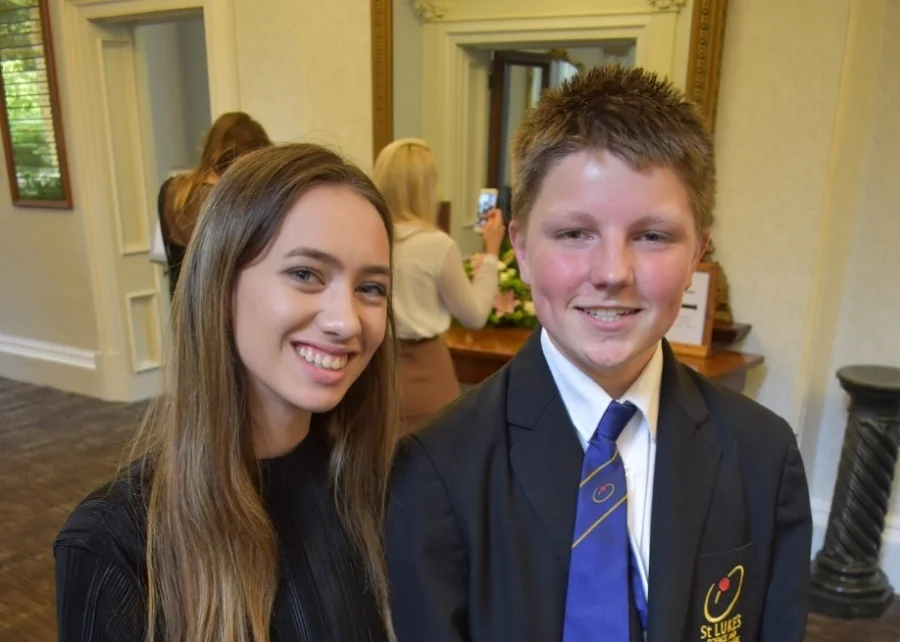By Gloria Nkuliza
My name is Gloria and I live in Lewisham in South East London. I am a Sixth Form student studying at Bacon’s College, having studied there in secondary school too. I’m interested in sports, science and music and aspire to become a Chemical Engineer after university.
What Peer Coaching is
Thankfully the opportunity came when CoachBright linked up my school with a new, exciting programme. This trained sixth formers to coach year 9 students and work with them for a few months to help them attain their academic goals. We would each aid our own student with one out of three major subjects; Maths, Science and English. Their aims would usually be to achieve a certain grade in upcoming tests or gain a solid understanding on a topic. Having a role model close to their age who could empathise with them, would be the motivation they needed to do better in their chosen subject. The team would then all come together to formally check that each student is making progress, coming up with ideas of how to develop literacy/numeracy, exam and essay techniques. As a group, we would support each other, along with the handy help of Robin and his experience in dealing with young people.
Why I wanted to be a Peer Coach
I was very passionate about becoming a peer coach as I knew that if I was younger, I would definitely have enjoyed and benefitted from having an older student to support me. I believe that this is a very encouraging programme, largely different from normal coaching or teaching as I could be an approachable and friendly role model to my chosen coachee. It is valuable for coachees to have somebody different to their peers or teachers who could provide them with a fresh perspective. I felt that I would be relatable enough for her to connect with and feel confident in sharing her academic and social struggles, knowing that I’d be very likely to understand having experienced similar situations and issues myself. Therefore, I also feel that more schools should have peer coaching programmes, as sixth formers would be able to give young students the appropriate help that would benefit them.
Channelling other coaches in my life
Having done my Mathematics GCSE early, I was blessed with having a maths teacher who encouraged me to push myself to my limits and aim high. He supported me with my achievements and instead of allowing me to settle, he inspired me to work hard, see a lot of potential in myself, and grow confidence in my ability. When I was in secondary school, I was very eager on keeping fit. I played a range of sports, so I had a couple of coaches support me. With sports, like other disciplines, you should be able to hold on to certain traits so that you can make progress and perform to the best of your abilities. For example, dedication, learning how to motivate yourself, and setting reachable goals are three of many. Therefore, I tried to inspire my own coachee to develop traits like these to ensure that she easily could achieve her goal and use these skills in the future to open new opportunities for herself. I believe that an effective coach is one that has the patience and resilience to be there to support their coachee no matter how long you may have to explain something to them or how difficult they may act towards you. I think it is important to create a relationship between you and the coachee, where you can be open and honest with each other and express any worries or concerns that may hinder the coachee’s success. Furthermore, I feel that it is vital for the coach to be enthusiastic when the coachee makes progress toward their goal, but also continue inspiring them to aim higher and see no limit to their potential success.
Lessons learnt
Becoming a peer coach, I’ve had a great opportunity to develop my teaching skills by learning how to explain topics in fresh understandable ways to my coachee. Through developing a friendly relationship with her over several months, I could comprehend the style of teaching that best suited her and work with that. Surprisingly, by assisting my coachee with revision techniques and routines, it also gave me the incentive to do the same for myself, subsequently causing us to grow together into better students. This allowed me to acknowledge that peer coaching is mutually beneficial and, as we worked together, we could bounce ideas off one another.
Feedback from my coachee
“When I was first told that I would be coached by a sixth former, I thought I’d have the same experience with them as I have had with my teachers, which I sometimes feel is very boring. However, Gloria and I have so much fun and developed a friendly bond between each other. I was always excited to go to her after school because I knew I was going to learn more about the subject that I have difficulties understanding but in a fun and interesting way. We would always start off by telling each other how our day was like and if I had problems with anything Gloria would help me solve it. She was not only there to help me with Science but she was also there to help me with my social life. I’m very glad I had a coach like Gloria and I think anyone would be happy having her as their coach. The whole CoachBright programme left me interested in having my own coachee to help them with whatever they find difficult and to be a friend they could count on.”










